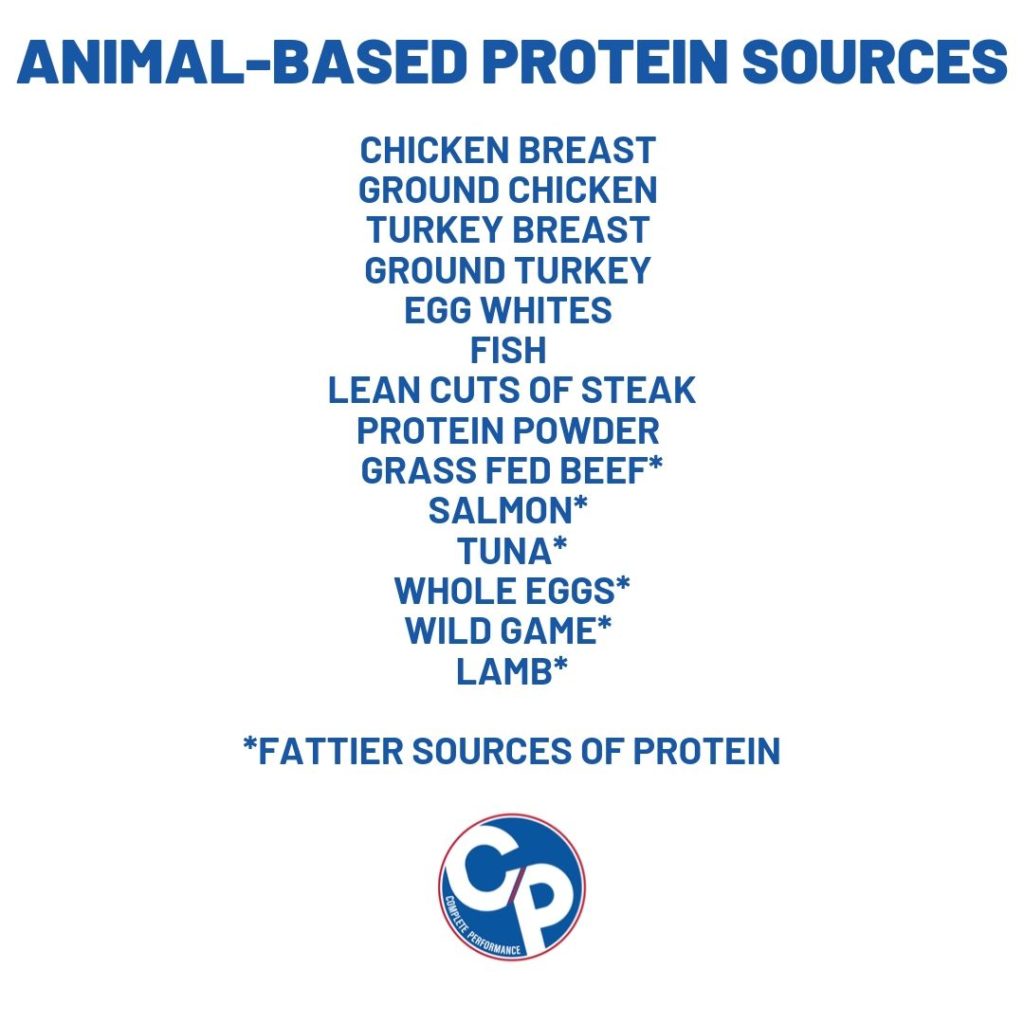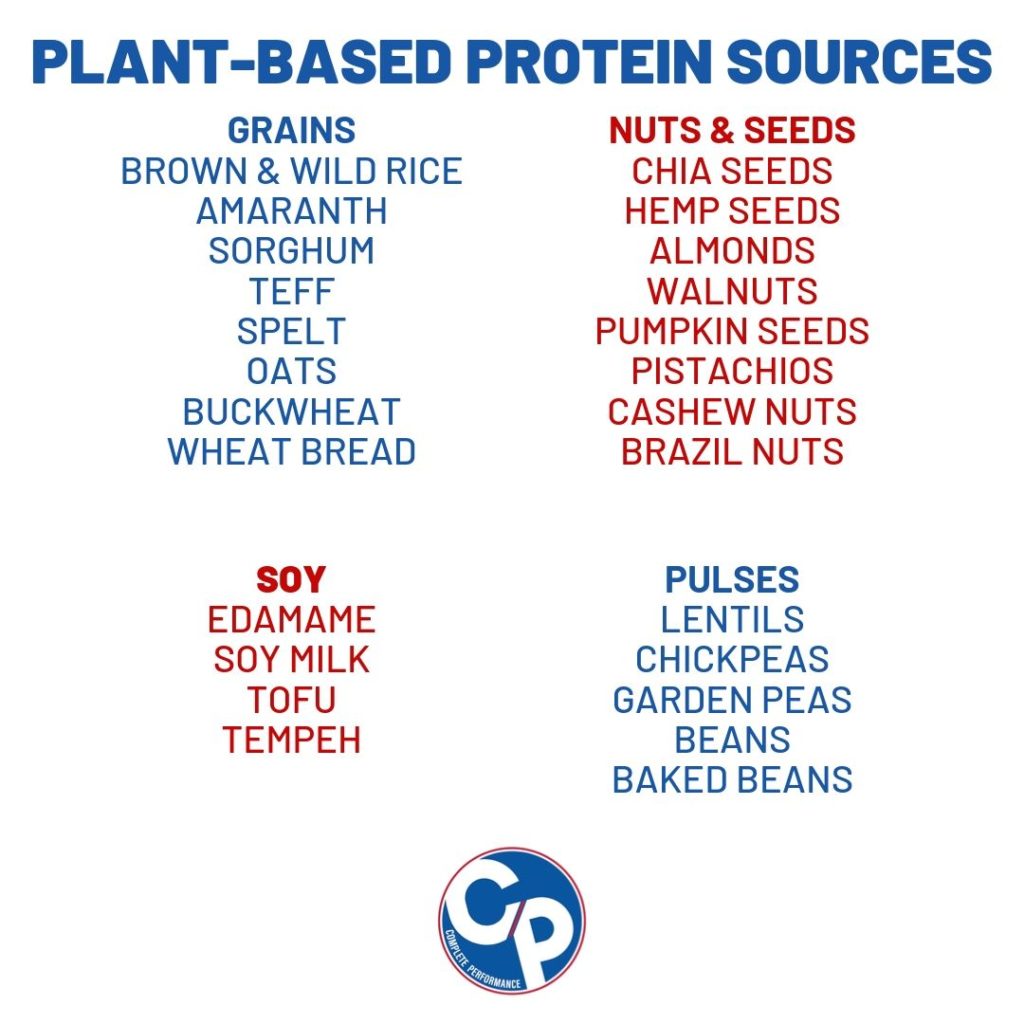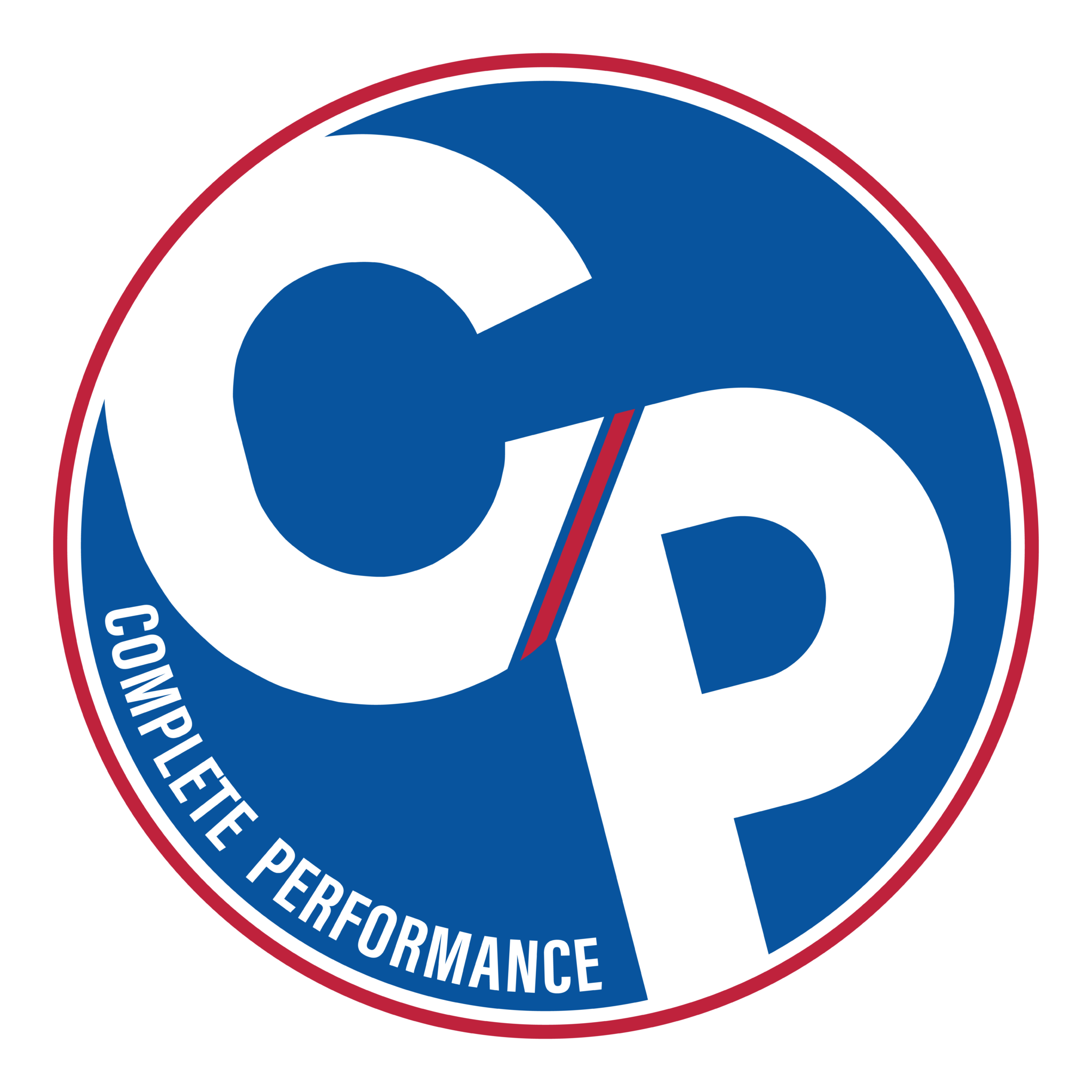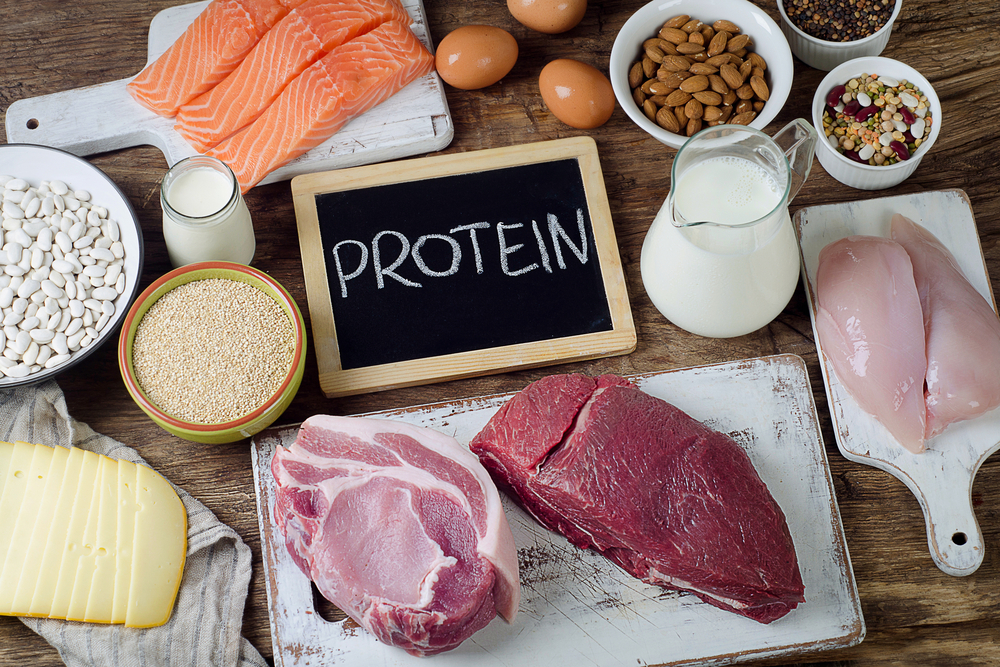Fat loss isn’t new.
HOW to lose fat isn’t new.
Create a deficit.
Whether that is a result of increasing exercise, decreasing food intake, or a combination of both is how you begin to mold your deficit to you.
So WHY is it still so hard to lose fat?
One of the major reasons is because how to decrease your food intake is such a widely debated topic.
But what seems to be consistently supported, as a part of a deficit is protein.
Protein has taken it’s fair share of public beating over the years, but if you’re serious about losing fat, it is now widely accepted that you NEED protein.
Now because you’re serious about fat loss, it’s important you truly understand protein (and all macro- and micronutrients for that matter). The better you understand what you’re putting in, the better likelihood for adherence in the short-term and for making these healthier options long-term.
Protein – What Is It?
By formal definition, protein is defined as:
“Any of a class of a nitrogenous organic compounds that consist of large molecules composed of one or more long chains of amino acids and are an essential part of all living organisms, especially as structural components of body tissues such as muscle, hair, collagen, etc., and as enzymes and antibodies.”
More commonly, it is known for its role as a staple for most nutritional protocols.
Protein is an essential nutrient, which means in order to survive; we cannot neglect protein consumption on a daily basis.
It is a macronutrient (a type of food required in large amounts to allow for proper functioning) that contains 4 calories per 1 gram.
But let’s not neglect all the nitty gritty of the formal definition, and dive into the make up of protein.
The most basic form of a protein is an amino acid. There are 21 amino acids that work in combination to build proteins. Of these amino acids, 9 are essential, which means they need to be consumed through the diet. This means 11 amino acids are produced in the body, and are waiting to collaborate with the essentials to build protein.
So protein is important and you need a lot of it, so where do these essential amino acids come from?
We’ll dive into the best sources of protein in a bit, but amino acids are best found in animal sources. Outside of animal sources, amino acids are found in nuts, legumes, grains, and seeds.
Now that you understand the makeup and nature of protein, let’s dig into how protein consumption affects your fat loss goals.
Benefits of Protein Consumption
Muscle Building and Retention
Protein is most known for its contribution to muscle mass, for it is the foundation of muscle tissue.
Muscles are essentially a massive collaboration of amino acids. Amino acids bind together to make up the two types of protein filaments, actin and myosin, that enables all contraction and relaxation of muscular tissues.
When your goal is fat loss, you are also working to retain current musculature and/or build new muscle tissue. In order to build or retain muscle tissue, your body needs to be stocked with amino acids, which means protein consumption is a requirement for fat loss.
As you progress in your fat loss goals and move further into a deficit, maintenance of muscle mass becomes more difficult without adequate protein intake.
Research suggests dieting individuals who increase their protein intake slightly above the standard recommendation of one gram per pound bodyweight to have increased rates of muscle protein synthesis. This means that the more protein you consume during a fat loss phase, the more likely you are to create an anabolic (creation or building) response.
A great deal of research has been dedicated to the evaluation of protein intake around workout times, and studies suggest supplementation of a protein before and after workouts (in comparison to carbohydrates alone) during a calorie deficit resulted in more muscle mass and strength gains.
Muscle retention and building is involved in fat loss, whether you realize it’s a part of your goal or not; therefore, a greater protein intake is going to be beneficial for your muscle tissue.
Satiation and Appetite Reduction
Protein is the most satiating macronutrient, which means it makes you feel more full for a longer period of time than either carbohydrates or fats.
There are two characteristics of protein making it more satiating:
- It boosts Peptide YY (the satiety hormone)
- It decreases ghrelin (the hunger hormone)
Protein directly influences your feelings of fullness and hunger, which are two pretty important factors during a calorie deficit.
High TEF
TEF, or the thermic effect of food, is defined as a food’s ability to increase metabolic rate after ingestion.
In common language, TEF is the number of calories your body burns digesting the food.
Protein again reigns supreme in this category, for it has a much higher TEF (20-30%) when compared to the other macronutrients (Carbohydrates: 5-10% and Fats: 0-3%).
Your body actually has to work harder to breakdown and digest protein, and when the body has to work harder, it’s burning more calories.
When the goal is fat loss, you’re working to increase your energy expenditure, which you can do through the increased consumption and resulting digestion of protein.
There’s No Such Thing As Too Much
With the way our body and energy systems are structured, it is nearly impossible to get fat on lean protein sources.
Research has evaluated consumption of protein in the range of 1.8 to 2.0 grams per pound bodyweight, and despite the increased caloric intake, researchers found no addition of excess body fat or negative health implications.
Protein is hard and very unlikely to be stored as body fat! It’s just a hard process for the body to undergo!
Besides the potential for fat storage, it is just really hard to overeat protein.
Have you ever heard of the meat sweats?
Imagine this as your food log for a day:
- Breakfast: 2 Cups Egg Whites
- AM Snack: 1 Cup Greek Yogurt
- Lunch: 1.5 Cups or 2 Chicken Breasts
- PM Snack: 2 Scoop Protein Shake
- Dinner: 2 Cups Ground Turkey
There’s no way I could eat that all in a day, and I eat a lot!
You would be stuffed!
Not only would there be no true benefit to this much protein, but this would be anything but a benefit to your gastrointestinal system (Do you smell that?).
I don’t recommend anyone consuming that much protein (unless you’re Hafthor Bjornsson or another rare genetic specimen). However, I do recommend a higher protein intake for a few reasons:
- Muscle Building and Retention
- Fullness and Satiety
- High TEF
- Inability to Be Stored as Body Fat
The Older You Get, The More Protein You Need
There’s one final reason I might recommend you consume a higher protein diet, and that is your age.
The older you get, the slower bodily processes become and the more your body begins to break things down; however, increased protein consumption has actually been found to decrease the rate of catabolism (breakdown).
One of the most common bodily processes to slow down is bone growth and maintenance. Protein helps to maintain these tissues, so a higher protein diet reduces the rate of bone breakdown.
Similar to bones, growth and maintenance of muscles becomes more difficult with age because the rate of muscle protein synthesis slows. Now, just because the process slows, does not mean protein intake should be decreased. The higher protein intake leaves amino acids readily available for muscle protein synthesis.
What Type?
Amino acids are found in greatest quantity in animal sources; therefore, if you are looking to strictly increase protein intake, then animal sources are the easiest way.
But they’re not the ONLY way.
Amino acids are found in a variety of non-animal sources; therefore, it does not mean that a vegetarian, vegan, or someone who just doesn’t care much for meat cannot be successful at increasing his or her protein intake.
Animal sources typically prove more advantageous because of their amino acid profile, meaning they have a complete amino acid build up, thus resulting in the absorption of the necessary amino acids. When more of the necessary amino acids are available, the body is more equipped to build or maintain lean muscle tissue.
A single plant-based protein source alone does not have a complete amino acid build up, meaning that single source must work in conjunction with another plant-based protein source to complete the amino acid profile.
You see, it doesn’t mean that if you’re vegetarian or vegan that you cannot eat adequate protein. It does mean you need to take into consideration your food pairings.
Here are two charts providing a variety animal- and plant-based protein sources:


How Much Protein Should I Consume During Fat Loss?
One of the most popular questions out there!
Answered only with one of the most popular coaching answers – it depends!
Significant research has been done to try to narrow down the PERFECT amount of protein, and the best research suggests within the range of 0.7 to 1.2 grams per pound bodyweight. Regardless of where you fall into that range, you are consuming a greater amount than the standard American diet.
If you’re uncertain of where to start, here is what I what I use to determine your protein recommendations:
If you’re looking to maintain weight and body fat, I recommend following this table:
The point is that if you like protein, and you eat a little extra protein, you really aren’t harming yourself.
The truth is that if you eat extra protein, it means you might pass on the chips, candy, or other less than optimal snacks.
Protein is by far one of the most important macronutrients when it comes to fat loss, so it’s important to track, measure, and be aware of your intake.
Your daily protein intake is completely unique to you, but it’s important that your educated and understanding of how it impacts your fat loss goals, lifestyle, training needs, and energy levels.
Now that you better understand the importance of protein, if you’d like to apply for Nutrition Coaching and not only know your recommended daily intake but be guided in how to reach that number, click HERE to get started today.





